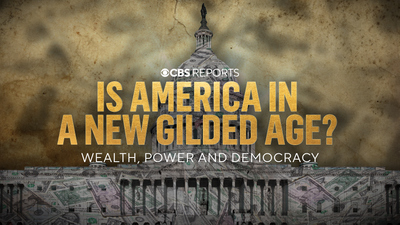The Rising Influence of Tech Moguls in American Politics
As the dust settles after the latest presidential inauguration, a significant shift in the political landscape has emerged, catching the attention of many observers. The presence of tech billionaires in prominent seats during the ceremony and the unprecedented influence wielded by the world’s wealthiest individual over federal agencies have sparked a crucial dialogue about the intersection of wealth, power, and democracy in contemporary America.
A New Gilded Age?
The question is arising: Are we witnessing the dawn of a new Gilded Age? The term historically refers to a period marked by extreme wealth concentration, social inequities, and a considerable gap between the rich and the poor. Much like the late 19th century, today’s technological titans are reshaping not only the economy but also the political fabric of the nation.
The recent inauguration saw influential figures from the tech sector garner attention, raising eyebrows and questions regarding their roles and motivations in the political sphere. With some individuals possessing immense financial resources, their clout in politics has never been more pronounced, leading to discussions about the overall impact on democracy.
The Power Dynamic
One cannot help but consider what such concentration of power means for American governance. The integration of billionaire influence could alter policy directions in ways that serve their interests rather than those of the general populace. The potential for misguided priorities raises concerns about accountability, transparency, and the essence of representative democracy.
Concerns Over Wealth-Driven Politics
Critics of this emerging trend echo alarms over the implications of allowing a small cadre of individuals to have substantial sway over government policies. The risks include:
- Policy Bias: Decisions may increasingly favor corporate interests at the expense of public welfare.
- Inequality: Wealth may continue to translate into power, exacerbating existing social divides.
- Public Distrust: Citizens may become disillusioned with a system perceived as manipulated by the wealthy.
Beyond the immediate political implications, there are broader concerns about the societal impact. The notion that democracy should be accessible to all citizens, regardless of economic status, is a core American value that could be threatened by this emerging dynamic.
The Role of Billionaires
While some argue that the involvement of billionaires in politics could lead to innovative solutions to pressing societal issues, the skepticism remains regarding whose interests are truly being served. Philanthropic ventures taken on by affluent individuals often come with strings attached, potentially leading to outcomes that do not align with democratic principles.
Adapting to New Realities
In light of these shifts, America is at a crossroads. Can effective mechanisms be established to balance the wealth and power of tech moguls with the foundational tenets of democracy? This requires a vigilant citizenry and a robust discourse about the role of money in politics.
As the nation grapples with these challenges, the historical lessons of the Gilded Age serve as a reminder of the hazards of unchecked wealth. Ensuring that democracy prevails requires collective action and a steadfast commitment to equity and fairness.
Key Insights on Wealth and Influence
| Aspect | Implications |
|---|---|
| Concentration of Wealth | Increased political influence of the wealthy |
| Policy Direction | Potential bias towards corporate interests |
| Public Perception | Erosion of trust in political institutions |
America’s path forward will depend significantly on its ability to address these pressing questions, ensuring a carefully calibrated balance between wealth and democratic integrity.














